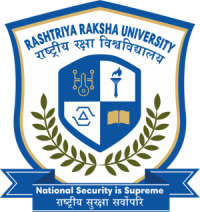SECURITY IN THE DIGITAL AGE: CERTIFICATE COURSE ON EMERGING TECHNOLOGIES
.png)
Description
The "Security in the Digital Age" certificate course is a five-day program organized by Rashtriya Raksha University. This prestigious course brings together Malaysian students, researchers, and Police personnel’s from the Royal Malaysian Police and ASEANAPOL. Our expert faculty will provide insights into emerging technologies and their impact on national security.
Program Curriculum
Day 1: Introduction to National Security and Emerging Technologies
Objectives:
•Understand the evolving nature of national security in a tech-driven world
•Identify key emerging technologies impacting security
Topics Covered:
•Conceptual foundations of national security
•Strategic importance of emerging technologies (AI, IoT, Blockchain, Quantum Computing)
•Technology as both an opportunity and threat
•National and ASEAN regional security frameworks
•Role of academia, state, and private sector in tech-driven security
Activities:
•Interactive lecture
•Group discussion: “Technology – Friend or Foe?”
•Case examples from India and Southeast Asia
Day 2: Cybersecurity Challenges and Strategies
Objectives:
•Analyze current and evolving cyber threats
•Explore strategic approaches to cybersecurity in national infrastructure
Topics Covered:
•Cyber threat landscape: ransomware, APTs, misinformation, espionage
•Critical infrastructure protection
•National and international cybersecurity policies
•Cyber warfare and geopolitical dimensions
•Building resilient systems
Activities:
•Scenario-based threat simulation
•Case study: Cyberattack on critical systems
•Q&A with cybersecurity experts
Day 3: Artificial Intelligence in National Security
Objectives:
•Understand AI’s role in defense and intelligence
•Explore use cases, benefits, and ethical risks of AI in security
Topics Covered:
•AI for surveillance, intelligence, and pattern recognition
•Autonomous systems (drones, vehicles, weapons)
•Predictive analytics in crime and threat prevention
•Risks of bias, black-box models, and accountability
•Cross-border implications of AI use
Activities:
•Demo of AI surveillance systems
•Workshop: Designing ethical AI for public safety
•Policy dialogue: Human-in-the-loop in critical systems
Day 4: Data Privacy, Ethics, and Regulatory Frameworks
Objectives:
•Examine the ethical dilemmas around surveillance, data use, and tech-enabled governance
•Learn about legal frameworks guiding digital security
Topics Covered:
•Global data privacy laws: GDPR, Malaysian PDPA, India’s Digital Personal Data Protection Act
•Ethical AI and data governance
•Surveillance vs. civil liberties
•Regulatory compliance for public and private institutions
•ASEAN regional harmonization efforts
Activities:
•Debate: “Is privacy dead in the digital age?”
•Policy gap analysis activity
•Guest lecture from data protection authority
Day 5: Future Trends and Collaborative Approaches
Objectives:
•Explore future tech and global security shifts
•Promote regional cooperation and shared security models
Topics Covered:
•Foresight into technologies of 2030 (quantum, neurotech, bio-digital convergence)
•Smart cities and tech-enabled governance
•Building ASEAN-wide digital security alliances
•Joint task forces and intelligence sharing
•Capacity building and academic partnerships
Activities:
•Roundtable: ASEANAPOL + Academia + Practitioners
•Group presentations on cross-border security models
•Certification ceremony & feedback session
What you'll learn
Introduction to National Security and Emerging Technologies Overview of national security in the context of emerging technologies; key technologies like AI, IoT, cybersecurity; modern warfare and intelligence applications.
Artificial Intelligence in National Security AI's impact on defense strategies; ethical risks; practical applications in surveillance, threat detection, and data analysis.
Future Trends and Collaborative Approaches Emerging trends (quantum computing, Blockchain); importance of international collaboration; strategic security framework integration.
Cybersecurity Challenges and Strategies Cyber threats and vulnerabilities; case studies of recent attacks; strategies for protecting critical infrastructure.
Data Privacy, Ethics, and Regulatory Frameworks Balancing security needs with privacy rights; ethical frameworks for technology use.
Requirements
Course Content
Semester with subjects
 No Semester Founds.
No Semester Founds.

Recent Reviews